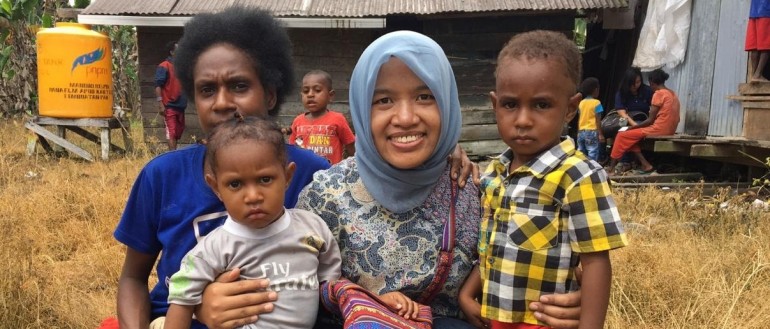TB project in Papua is now a model for others
A Menzies-supported program in Papua, Indonesia has been recognised as the best tuberculosis (TB) program in the province by the Indonesia National TB Program for the second year in a row.
Dr Trisasi Lestari, a Menzies-CDU PhD candidate looking at improvements in TB prevention, has been leading this work supported by a Menzies-Burnet Institute consortium. The consortium, formed in 2016, delivers regional health system strengthening through the Health Security Initiative for the Indo-Pacific region.
In Mimika, Papua province, Dr Lestari has been implementing intensive training, including ‘train-the-trainer’ sessions, to ensure sustainability and continuous quality improvement strategies. The training also aims to ensure that guidelines on TB prevention are put into practice.
Dr Lestari is also implementing creative motivational approaches to inspire staff working in the challenging area of TB care. These have resulted in dramatic increases in the number of people being screened for TB in the district and being prescribed TB preventive treatment.
Cases of TB have been discovered through screening that might otherwise have progressed to a severe, contagious disease. The success of the program has attracted the attention of the national TB program and now resulted in this important award.
Kamaludin, the TB coordinator at Mimika District Health Office, says that the program has given new colour and enthusiasm to TB officers at the puskesmas (Primary Health Centers) to conduct a thorough contact investigation.
“Improvements were also felt in terms of recording and monitoring. At present Isoniazid Preventive Treatment and contact investigations have been carried out by all health facilities,” Kamaludin said.
The program was also chosen to represent Indonesian district programs at the Indonesian TB Day celebrations this year. The project is now also informing Indonesian national policy on TB contact management.
Indonesia has the third-highest TB caseload internationally, with more than one million people diagnosed with the disease each year (World Health Organisation, 2018).
TB is an airborne bacterial infection that can be transferred by coughing. It is the leading cause of death in Indonesia, with those at most risk being people with weakened immune systems and children. Treatment for the disease involves a minimum six-month course of antibiotics. If left untreated, tuberculosis leads to decreased quality of life or premature death.

